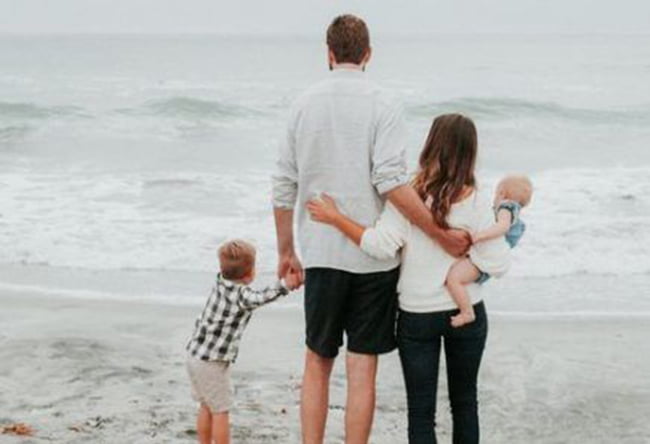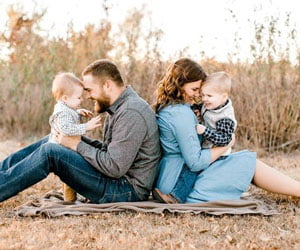News that parents are separating is a hard concept for children to take in, that’s why we’ve made it easy, relationship expert Annie Gurton reveals the best ways to tell children about a break up.
So, you’ve decided to separate and eventually divorce. You are going through a whole shed-load of pain and anger. And there are people under 18 still living in your house. They are going to be impacted. How to break it to them that their lives are never going to be the same again?
 Image Via: Pinterest
Image Via: Pinterest
The main rule of thumb when telling children is: ‘Less is more’. They are children, you are their adult caregivers, and they don’t need or want to know all the grizzly and distressing details. Your primary job is to protect them.
It is vital that your separation is as conflict-free as possible. If the children see or hear any conflict between you they will be stressed and anxious, even if they don’t show it. The differences between children of separated parents who are in dispute, hate each other, can’t bear to even say each other’s name and parent in a parallel way (each doing their own thing so that for the child its like shifting between Venus and Mars), are dramatically different when compared with parents who are able to respect each other, support each other and parent co-operatively. Parents need to be child-focussed, and if the children are old enough, child inclusive.
It is normal for children to feel unsettled if you’re going through a separation. There is fear of the unknown, and anxiety about how it is all going to impact them. They need to feel secure and safe, and an announcement that Mummy and Daddy are going to be living in different places brings up all kinds of insecurities.
You can help your children by talking honestly, reassuring them that they will still be loved and the centre of your world. They need to know that you adore them, will always be there for them and will always support and never leave them. They need to know that you know that they are wonderful, unique, beautiful and perfect, while at the same time guiding them with authoritative (not authoritarian) parenting.
Involve the children is small decisions, get them to talk about their feelings and fears, and take time for family fun. Play together, develop interests together, and reassure them that you are not going to disappear from their lives as a consequence of the separation.
So when telling the children:
- make it easy for your kids to love you both
- tell them that they are loved
- tell them the truth
- keep it simple
- keep it civil – don’t criticise or belittle the other parent in front of the children.
But don’t necessarily tell them that the separation is not their fault or nothing to do with them – at this stage they are not likely to have considered it was, and planting that thought can lead them to think it was despite what you are saying.
You should also avoid:
- using your children as messengers – apart from being immoral it also teaches them that adults cannot talk honestly or directly to each other
- ask the children to report on the other parent
- verbally abuse or criticise the other parent to the children – a conflicted adult atmosphere is highly destructive for the kids
- spoil the children with gifts and outings or unrealistic good times – parenting needs to be normal
- put any pressure on the kids to take sides
- or use any coercive strategies which put pressure on the kids to take sides.
For more information go to Relationships Australia (www.relationshipsaustralia.org.au)
Annie Gurton is an Imago Relationship Therapist based on Sydney’s Northern Beaches. www.anniegurton.com















